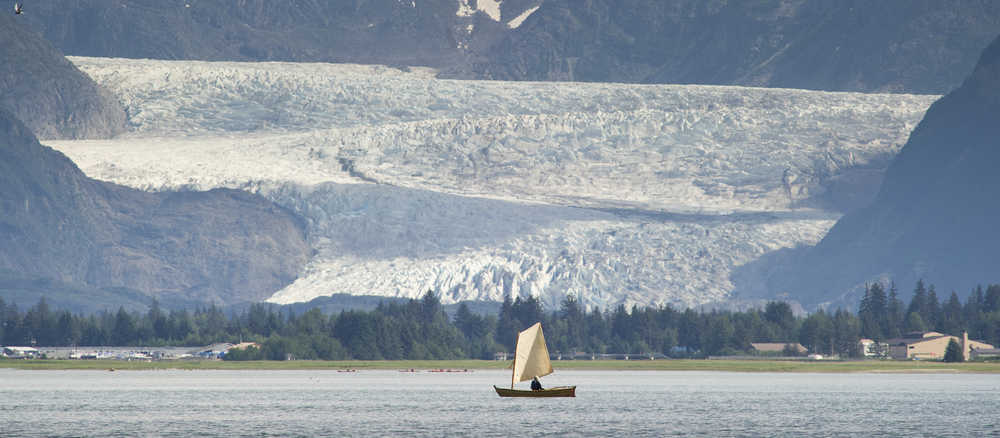Alaska’s capital city has just finished its ninth consecutive month of warmer-than-normal temperatures and is on pace for its warmest year on record, according to figures from the National Weather Service.
June temperatures were 1.9 degrees above normal in Juneau, and June 16 saw a high temperature of 80 degrees. On average, the city sees just two 80-degree days in a given year.
Last year was the warmest year ever recorded in Juneau, and the abnormal conditions have continued into 2016 as well. April and March were the warmest ever recorded in Juneau, while February was the second-warmest. Temperatures in January were 6.6 degrees above normal, and the city saw only a trace of snow during the month, tying the record for the lowest snowfall recorded since 1942.
The abnormal warmth has stretched statewide as well. From Jan. 1 through June 30, an index of 25 Alaska cities compiled by the Weather Service’s Rick Thoman found only one day with a below-average temperature.
Last year, which set a record for the warmest ever in Alaska, there were approximately 45 days below normal on the index.
In early June, the Weather Service declared that Alaska temperatures in the first five months of the year averaged 26.1 degrees — 10.3 degrees above the 1925-2000 average and well above the previous record of 23.7 degrees set in 1981.
“This is just unbelievable, the persistence of this on a statewide scale,” Thoman said by phone from Anchorage.
The abnormal temperatures are believed to be linked to human-caused climate change. Growing levels of heat-trapping greenhouse gases are leading to a rise in global temperatures, but the rise has been sharpest in the Arctic.
Wet-wise, Juneau is much closer to normal for the year. Through Wednesday morning, Juneau has seen 26.97 inches of precipitation (rain and melted snow). The norm for this point in the year is 23.47 inches. Last month saw 3.48 inches of rain, 0.24 inches above normal.

